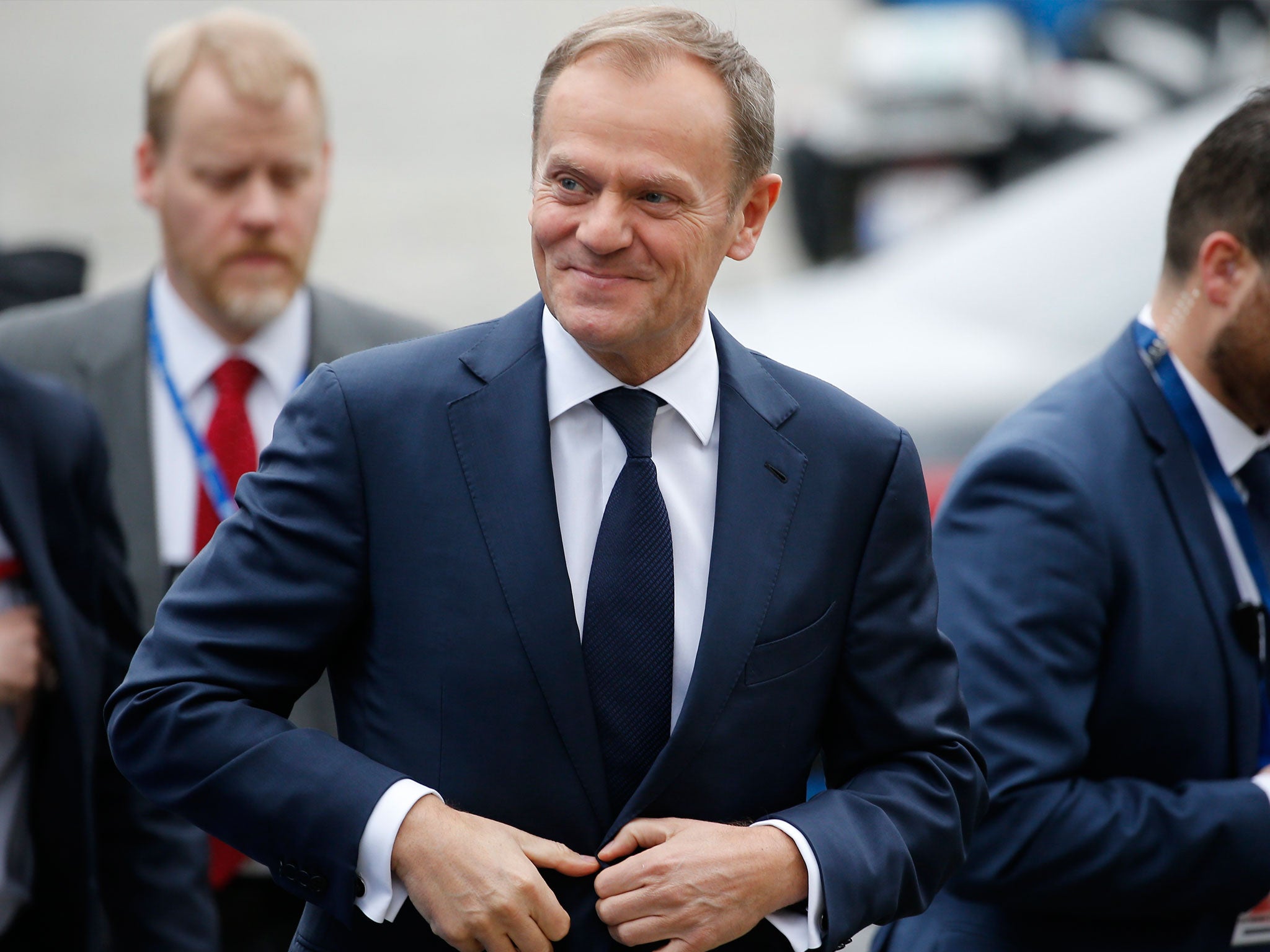Poland warns of disunity across the EU after Donald Tusk re-elected European Council president
'We know now that it is a union under Berlin's diktat,' says Poland's foreign minister

Donald Tusk has been reelected president of the European Council, angering the right-wing government of his native Poland and triggering a bitter dispute between Warsaw and Brussels.
The head of Poland’s ruling Eurosceptic Law and Justice party (PiS) seized on his re-election to attack the EU for being “dominated by Germany” and accused the bloc’s leaders of breaking rules to force through his appointment.
Jaroslaw Kaczynski denied the row would prompt Poland to consider leaving the EU, but said: "The rule that high-ranking officials should have the backing of their country was broken.”
Polish Foreign Minister Witold Waszczykowski told news site wPolityce.pl: "A very dangerous European relationship is being born -- a toxic relationship that could harm many states.
"We know now that it is a union under Berlin's diktat.”
Beata Mazurek, a spokeswoman for the country’s ruling nationalist party, added that his re-election - despite protests from Poland - was a bad sign for Europe.
"This will no longer be a union of unity,” she warned.
Unconfirmed reports suggested Poland would block a statement released by the EU after the summit, which concludes on Friday.
Mr Tusk’s reappointment was fiercely opposed by PiS, which earlier threatened to derail the EU summit being held in Brussels.
The EC president is a former prime minister of Poland who is closely tied with the country’s centrist opposition.
Warsaw had portrayed the issue as a battle to protect national interests in the face of increasing power centred in Brussels.
The move now means all three main political institutions - the European Council, Commission and Parliament - are run by centre-right politicians.
As a result, EU leaders have agreed to discuss the party political balance in top appointments, Malta's prime minister said.
The most senior centre-left officials are Dutch Finance Minister Jeroen Dijsselbloem, who heads the Eurogroup of euro zone finance ministers, Juncker's Dutch deputy at the European Commission, First Vice President Frans Timmermans, and foreign policy chief Federica Mogherini from Italy.
The row has highlighted a deepening split between eastern members reluctant to cede more powers to Brussels and richer western states keen to deepen EU integration.
Join our commenting forum
Join thought-provoking conversations, follow other Independent readers and see their replies
Comments
Bookmark popover
Removed from bookmarks